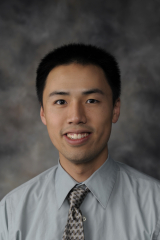The Role of MiRNA Impairment in Wilms' Tumor Formation

Background
Wilms' tumor is the most common pediatric kidney cancer. While many patients are cured, children with high-risk disease continue to have poor outcomes. No alternative, targeted therapies have proven effective in Wilms' tumor. One-fifth of Wilms' tumors harbor mutations in the enzymes are responsible for producing microRNAs, small RNA molecules that regulate expression of target genes. These mutations drive tumor formation; leading to a worse prognosis.
Project Goal
In this application, I will build on these findings by defining precisely how these mutations drive tumor formation. Specifically, the central hypothesis to be tested here is that DICER1 and DROSHA mutations cause Wilms' tumor by impairing production of key microRNAs and de-repressing key oncogenes. Understanding exactly how these mutations cause Wilms' tumor will lead to future studies investigating novel strategies to therapeutically target these tumorigenic mechanisms.
"Each new patient I see inspires biological questions: how children develop cancer, why our therapies work or don’t work, and how to improve detection and treatment of chemoresistant disease. Without external research funding, such questions would remain intellectual curiosities. Instead, with the ALSF Young Investigator grant, my clinical background drives my research interests, as I seek to address pressing clinical problems and questions in the lab.
Yet, in an environment of limited funding for pediatric cancer research, “safer” projects are often prioritized over riskier, more ambitious ones. For an early career investigator like me, this pressure becomes compounded by the need to develop a scientific niche separate from my mentor, which often requires riskier preliminary studies. ALSF YI funding fills a critical gap by allowing someone like me to continue my work in a mentored environment while pursuing a brand-new direction. It allows me to boldly chase breakthroughs in childhood cancer, while acquiring the skills to become a successful independent investigator, so that I can devote my career to scientifically answering those clinical questions." - Kenneth Chen, MD

